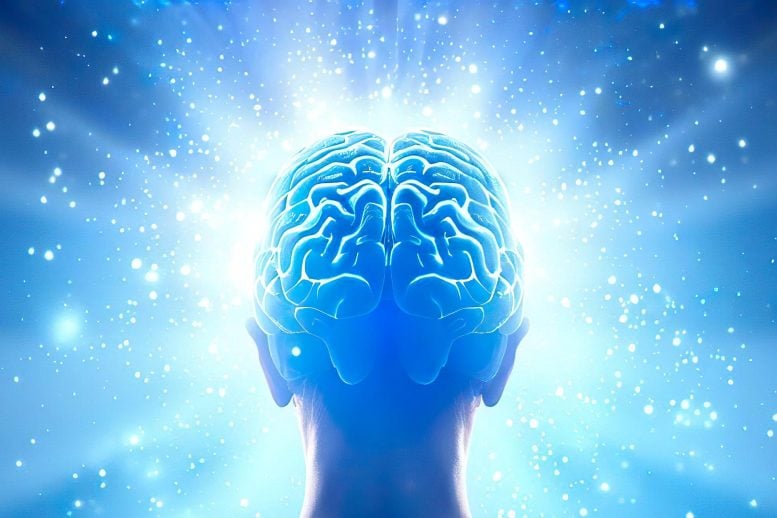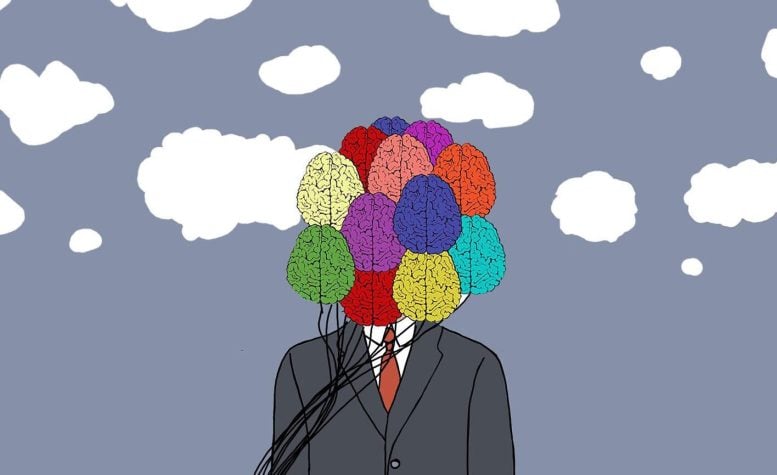
New research shows that forgetting is an adaptive, reversible process where memories remain stored but become inaccessible, offering hope for memory-related disorders.
Neuroscientists have unveiled initial findings from experiments investigating the concept that “forgetting” might not be a bad thing, and that it may represent a form of learning – and outline results that support their core idea.
Previously, these scientists proposed that changes in our ability to retrieve certain memories stem from environmental feedback and predictability. They argued that instead of being a flaw, forgetting could be an intentional characteristic of the brain, enabling it to adaptively engage with ever-changing surroundings.
Forgetting as an Evolutionary Advantage
In a changing world like the one we and many other organisms live in, forgetting some memories would be beneficial, they reasoned, as this can lead to more flexible behavior and better decision-making. If memories were gained in circumstances that are not wholly relevant to the current environment, forgetting them could be a positive change that improves our well-being.
In a paper published in the leading international journal Cell Reports, they present the first in a series of new experimental studies where the effect of natural, “everyday” forgetting was investigated with respect to how normal forgetting processes affect particular memories in the brain.
The team studied a form of forgetting called retroactive interference, where different experiences occurring closely in time can cause the forgetting of recently formed memories. In their study, mice were asked to associate a specific object with a particular context or room, and then recognize that an object that was displaced from its original context. However, mice forget these associations when competing experiences are allowed to ‘interfere’ with the first memory.

To study the result of this form of forgetting on memory itself, the neuroscientists genetically labeled a contextual “engram” (a group of brain cells that store a specific memory) in the brains of these mice, and followed the activation and functioning of these cells after forgetting had happened. Crucially, using a technique called optogenetics they found that stimulation of the engram cells with light retrieved the apparently lost memories in more than one behavioral situation. Furthermore, when the mice were given new experiences that related to the forgotten memories, the ‘lost’ engrams could be naturally rejuvenated.
How Memory Interference Shapes Recall
Dr. Tomás Ryan, Associate Professor in the School of Biochemistry and Immunology and the Trinity College Institute of Neuroscience at Trinity College Dublin, is the lead author of the just-published journal article.
Dr. Ryan, whose research team is based in the Trinity Biomedical Sciences Institute (TBSI), said: “Memories are stored in ensembles of neurons called ‘engram cells’ and successful recall of these memories involves the reactivation of these ensembles. By logical extension, forgetting occurs when engram cells cannot be reactivated. However, it is increasingly becoming clear that the memories themselves are still there, but the specific ensembles are not activated and so the memory is not recalled. It’s as if the memories are stored in a safe but you can’t remember the code to unlock it.”
Dr. Livia Autore, Irish Research Council (IRC) Postgraduate Scholar, who spearheaded this work in the Ryan Lab in Trinity, added: “Our findings here support the idea that competition between engrams affects recall and that the forgotten memory trace can be reactivated by both natural and artificial cues as well as updated with new information. The continuous flow of environmental changes leads to the encoding of multiple engrams that compete for their consolidation and expression.
“So while some may persist undisturbed, some will be subjected to interference by new incoming and prevailing information. However, the interfered memories can still be reactivated by surrounding cues leading to memory expression or by misleading or novel experiences ending up in an updated behavioral outcome.”
Implications for Memory Disorders Like Alzheimer’s
Because we now know that “natural forgetting” is reversible in certain circumstances, this work has significant implications for disease states – such as in people living with Alzheimer’s disease for example, where these everyday forgetting processes may be mistakenly activated by brain disease.
Reference: “Adaptive expression of engrams by retroactive interference” by Livia Autore, James D. O’Leary, Clara Ortega-de San Luis and Tomás J. Ryan, 16 August 2023, Cell Reports.
DOI: 10.1016/j.celrep.2023.112999
The study was funded by the European Research Council, the Canadian Institute for Advanced Research, the Irish Research Council, and the Science Foundation Ireland.
Never miss a breakthrough: Join the SciTechDaily newsletter.
8 Comments
Forgetting has to be a functional feature because brains actively terminate memories.
Most people think memories just ‘fade’ away, but biology doesn’t work passively like that. I recall research (on animals) 10-15 years ago, they determined that dopamine is used to actively eliminate memories.
What did you do to those animals?
my whole life is a lie!
So my whole life is a lie?
You ever known a person with alzheimer? They usually seem really happy.
Prioritizing information is not a new concept. I think what is more interesting is how some people crave learning and others could care less. And how alot of people who don’t learn well are so stinking funny. Is being quick witted then a form of intelligence? Do those folks develop dementias less often than other forms of intelligence?
Leona I agree , maybe levels of sarcasm relate to levels of narcissism and the focus of priorities of every single individual. Whether they are arrogant or humble . In the inevitable end , a mind without its sentinel body will release its sincerity.
Leona I agree , maybe levels of sarcasm relate to levels of narcissism and the focus of priorities of every single individual. Whether they are arrogant or humble . In the inevitable end , a mind without its sentinel body will release its sincerity.